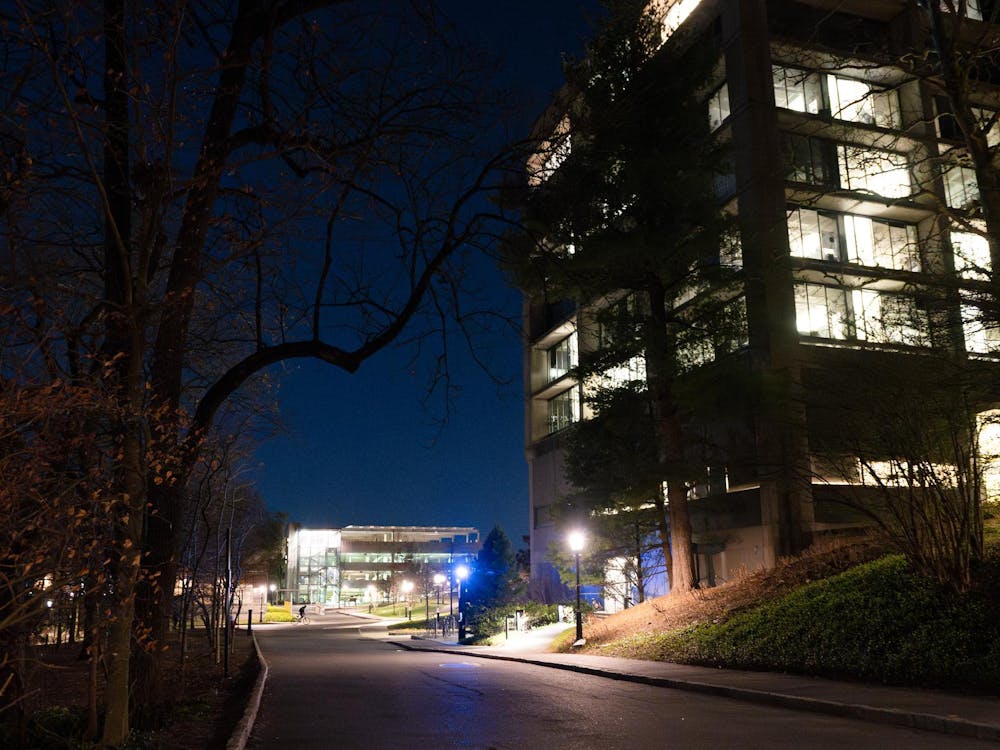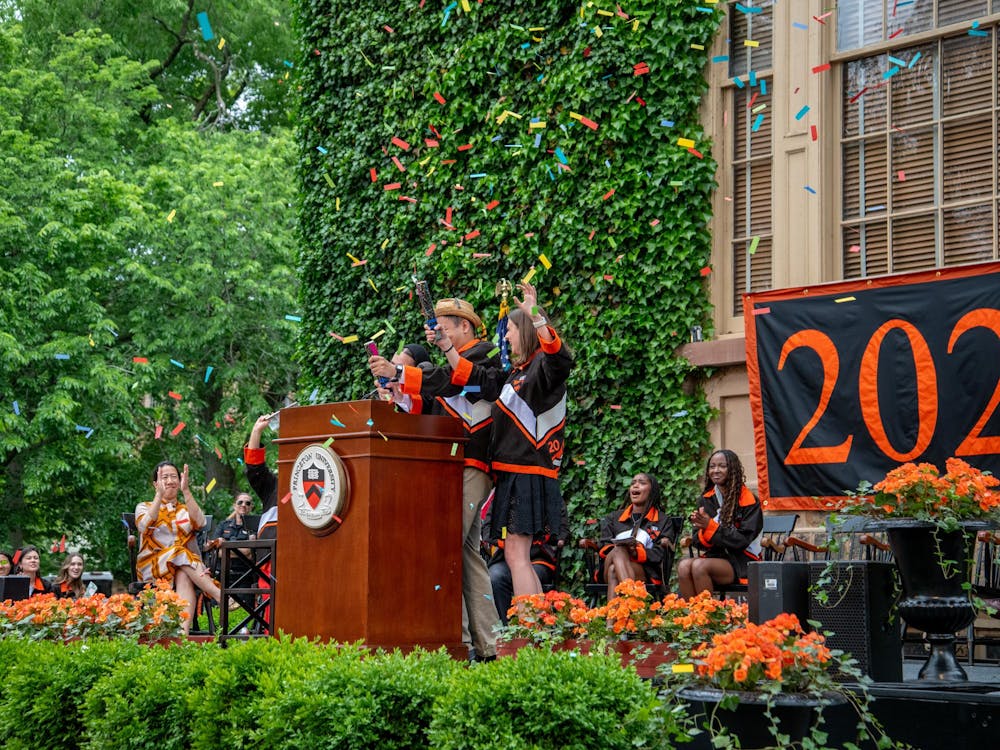The Urban Congo group is offensive, distasteful and morally reprehensible. Kudos goes to Achille Tenkiang ’17, who was able to preserve the video of its performance on YouTube before the group hastily removed it. It is clear that the group members were attempting to be funny, but the truth is that they were anything but that. A large Princeton logo looms in the background of the stage as they go through their act. This is unacceptable for an institution like ours.
Their performance continues the long history of cultural reduction of that region of Africa that even extends into Western literature. In his critique of Joseph Conrad’s “Heart of Darkness,”Chinua Achebe, the esteemed author of “Things Fall Apart,”declared that Conrad rendered Africa “a metaphysical battlefield devoid of all recognisable humanity, into which the wandering European enters at his peril.”
The Urban Congo performance falls into that category of depictions of Africa. On the contrary to some of the discourse, however, this is not a case of “cultural appropriation” insomuch as it is the repugnant depiction of ugly stereotypes dating back to the colonial era like those of “Heart of Darkness” or “Tintin in the Congo.” The online Oxford Reference defines cultural appropriation as “a term used to describe the taking over of creative or artistic forms, themes, or practices by one cultural group from another.” No artistic form was taken over in this instance — the Urban Congo group simply performed its ignorant version of a stereotypical “African” dance. Depictions like this only further reinforce the stereotype of the Congo as a dehumanized land of bongo drums and elephants.
In addition to its insensitivity towards Africans, the routine conflates Africans with city-dwellers with its usage of the word “urban” to mean “black,” as if America’s urban centers are “wild,” “uncivilized” places because of their non-white residents. Given that seven out of the 15 most populous American cities have majority-minority populations, this is a highly problematic characterization, especially since the cast of the show was all white.
Having grown up in the Detroit area and bearing witness to all of its racial inflammations, I’ve seen firsthand how this kind of racially motivated urban-suburban split can tear a region apart — I often heard my classmates in my suburban high school talk about a fear of “urban” influences as a euphemism for their fears of black people. My own home suburb of Grosse Pointe, which is majority white, erected a farmers’ market in the summer of 2014 across one of the main roads linking Grosse Pointe to the majority black city of Detroit, effectively walling off that section of Grosse Pointe from Detroit. The wall of sheds was only removed in the fall of 2014 after a firestorm of criticism, although the barricades across smaller roads remain.
Despite Urban Congo’s insistence that its intentions were not harmful, the optics were certainly bad enough to merit a stronger apology than the milquetoast one delivered by the head of the group, Michael Hauss ’16, who emphasized the way in which the performance can help spark a dialogue on campus. The opportunity for dialogue is there, but it should not deflect criticism from those responsible.
The first step toward preventing more incidents like this one is tightening the requirements for funding and recognition from the Office of the Dean of Undergraduate Students (ODUS). The Daily Princetonian reports that the group was “recognized and sponsored” by ODUS, which never should have happened in the first place had there been a more stringent review of the group’s intended activities. The name alone should have been a dead giveaway for its offensive potential, and I am not sure why those who approved the group did not give pause when the group’s name slid across their desk. What should have happened is an inquiry into the group’s intended actions. This stringency of review need not be a constraint on free speech — a balance can be struck between legitimate cultural expression and bigotry. A group can say or express what it wants so long as it does not provoke harm to others as per its First Amendment rights, but that doesn’t mean that it has to receive ODUS recognition and sponsorship, or be free of criticism, for that matter.
In her April 6 column, Daily Princetonian columnist Zeena Mubarak wrote that we should consider the ramifications of our actions, given the backlash against this show. I agree with her completely. Much of the press about these kinds of offensive incidents tends to center around depictions of black people, but the same logic applies to all groups, be they black, Asian, or otherwise. It’s not even simply a matter of cultural sensitivity — it’s just a matter of basic decency towards your fellow students. There are legitimate grievances about the offensiveness of these incidents, and reductionist, inflammatory statements like many of those on social media have done nothing to help the discourse about such weighty issues.
This campus only has 5,300-odd undergraduate students living together inside the Orange Bubble. Let’s get along, shall we?
Nicholas Wu isa freshman from Grosse Pointe Shores, Mich. He can be reached at nmwu@princeton.edu.








